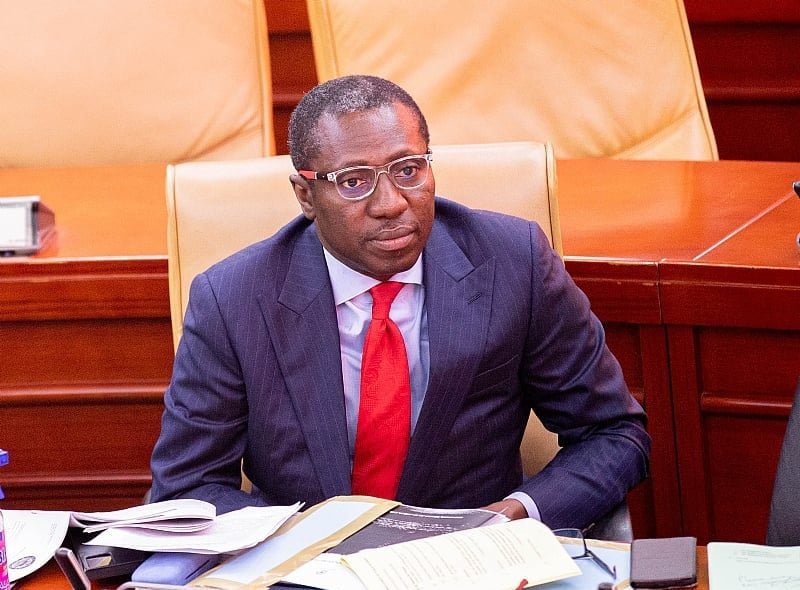Introduction
The recent statement by Afenyo-Markin, the Minority Leader, has sparked controversy and raised concerns about the recruitment process into the Ghana Army. His comment about “protocol enlistment” has led to questions about whether the Army’s recruitment process is truly merit-based or influenced by protocol and favoritism. This article examines the implications of Afenyo-Markin’s statement and the potential threat it poses to the merit-based recruitment process.
Background
The Ghana Army is a volunteer army under the Ministry of Defense, governed by the Republic of Ghana’s constitution of 1992. The Army’s recruitment process is designed to be transparent and fair, with eligibility criteria outlined on the Ghana Armed Forces Recruitment Portal. The process involves a series of steps, including purchasing a scratch card, filling out an online application, and submitting required documents. The portal emphasizes that recruitment is based on merit, not protocol or favoritism. However, Afenyo-Markin’s recent statement has cast doubt on this assertion, highlighting the need for closer examination and scrutiny of the recruitment process.
The Consequences of Protocol Enlistment
Protocol enlistment can have severe consequences on the effectiveness and morale of the Ghana Army. When recruitment is based on connections rather than merit, it can lead to:
Inefficient use of resources: Unqualified personnel may be recruited, leading to wastage of resources and decreased productivity. Decreased morale: Qualified personnel may feel demotivated and demoralized when they see less qualified individuals being recruited through protocol. Compromised national security: The recruitment of unqualified personnel can compromise national security, as they may not have the necessary skills and expertise to perform their duties effectively.
Personal Stories
Many individuals have shared their personal stories of being affected by protocol enlistment. One such individual, who wishes to remain anonymous, shared his experience:
“I applied to join the Ghana Army, but despite meeting all the eligibility criteria, I was not selected. Later, I found out that someone with connections had been recruited instead of me. It was demoralizing and frustrating.”
Expert Opinions
Experts in the field have also weighed in on the issue. According to Dr. Kwame Akonor, a security analyst:
“Protocol enlistment is a threat to the merit-based recruitment process. It undermines the integrity of the recruitment process and can lead to the recruitment of unqualified personnel.”
Comparison with Other Countries
Other countries have implemented measures to ensure merit-based recruitment. For example, in the United States, the military recruitment process is highly competitive, and recruits are selected based on their qualifications and performance. Similarly, in the United Kingdom, the military recruitment process is designed to be fair and transparent, with recruits selected based on their merit.
Call to Action
We urge the authorities to take concrete steps to ensure merit-based recruitment into the Ghana Army. This includes:
Implementing blind hiring practices to eliminate bias Using standardized testing to assess qualifications Establishing an independent review board to oversee the recruitment process
By taking these steps, we can ensure that the recruitment process is fair, transparent, and merit-based.
Conclusion
Afenyo-Markin’s protocol enlistment comment has raised concerns about the recruitment process into the Ghana Army. While the Ghana Armed Forces Recruitment Portal emphasizes that recruitment is based on merit, Afenyo-Markin’s statement suggests that protocol may play a role in some cases. We urge the authorities to take concrete steps to ensure merit-based recruitment and to eliminate protocol enlistment. By doing so, we can ensure that the Ghana Army is composed of qualified and competent personnel who are selected based on their merit.
Recommendations
To address the issue of protocol enlistment, we recommend the following:
The Ghana Armed Forces should establish a transparent and merit-based recruitment process that eliminates bias and favoritism. The government should establish an independent review board to oversee the recruitment process and ensure that it is fair and transparent. The Ghana Armed Forces should implement blind hiring practices to eliminate bias and ensure that recruits are selected based on their qualifications and performance.
Final Thoughts
The issue of protocol enlistment is a serious one that requires immediate attention. We urge the authorities to take concrete steps to ensure merit-based recruitment and to eliminate protocol enlistment. By doing so, we can ensure that the Ghana Army is composed of qualified and competent personnel who are selected based on their merit.
By Bless Ameko


